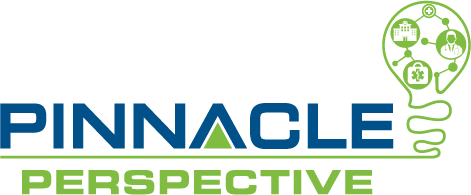
The 2024 Medicare Physician Fee Schedule Final Rule revealed some great advancements in behavioral health services and how CMS will allow them to be billed. We will highlight some of those changes in this article, but be sure to review the official final rule sourced below.
Starting January 1, 2024, marriage and family therapists (MFTs) and mental health counselors (MHCs) are permitted to bill for services through Medicare. Addiction counselors or drug and alcohol counselors who meet requirements can be designated an MHC and enroll in Medicare as MHCs as well.
Medicare defines both MFT and MHC services as “services for the diagnosis and treatment of mental illnesses (other than services furnished to an inpatient of a hospital).”
Both MFTs and MHCs must meet specific requirements to enroll with Medicare, as described below.
An MFT is an individual who:
- Possesses a master’s or doctorate degree which qualifies them for licensure or certification as an MFT under the state law where such individual furnishes marriage and family therapist services.
- Is licensed or certified as an MFT by the state in which they furnish services.
- Has performed at least 2 years of clinically supervised practice in marriage and family therapy or mental health counseling after obtaining the above referenced degree.
- Meets other requirements as the Secretary of Health and Human Services (“HHS”) determines appropriate.
An MHC is an individual who:
- Possesses a master’s or doctorate degree which qualifies them for licensure or certification as an MHC, clinical professional counselor, or professional counselor under the state law where such individual furnishes MHC services.
- Is licensed or certified as an MHC, clinical professional counselor, or professional counselor by the state in which they furnish services.
- Has performed at least 2 years of clinically supervised practice in marriage and family therapy or mental health counseling after obtaining the above referenced degree.
- Meets other requirements as the Secretary of HHS determines appropriate.
In conjunction with these changes, CMS has introduced two new HCPCS codes – GPFC1 and GPFC2 – psychotherapy for crisis. These codes will have a payment amount equal to 150% of the fee schedule amount for non-facility sites of service, for each year for services, as defined in codes 90839 and 90840.
- GPFC1 (Psychotherapy for crisis furnished in an applicable site of service (any place of service at which the non-facility rate for psychotherapy for crisis services applies, other than the office setting); first 60 minutes).
- GPFC2 (Psychotherapy for crisis furnished in an applicable site of service (any place of service at which the non-facility rate for psychotherapy for crisis services applies, other than the office setting); each additional 30 minutes (List separately in addition to code for primary service)).
Medicare will also allow MFTs and MHCs to bill for Behavioral Health Integration services (99492, 99493, and 99494).
An exciting update pertains to Behavioral Health Assessment and Intervention CPT codes 96156, 96158, 96159, 96164, 96165,96167, and 96168, and any successor codes, which can now be billed by clinical social workers, MFTs, and MHCs, in addition to clinical psychologists.
Time-based psychotherapy codes will have an increase in RVU’s over a 4-year transition period.
For hospice interdisciplinary groups, CMS now requires at least one social worker, MFT, or MHC be included.
Several other changes are rolling out for communities most in need when it comes to healthcare. The CAA 2023 will allow MFTs and MHCs to provide services in rural health clinics (“RHC”) and federally qualified health centers (FQHCs). CMS is finalizing requirements for Conditions for Certification and Conditions Coverage for RHCs and FQHCs to allow MFTs and MHCs to provide additional behavioral health services. Furthermore, the CMS definition of a nurse practitioner was revised to remove the requirement they must be certified in primary care to provide care in RHCs and FQHCs.
As you can see, these changes affect many different types of behavioral providers and service lines. It is important to carefully review these changes and analyze how to best implement them for your practice.
Be on the lookout for Article 3 of this series.
Keeping up with the rapidly changing rules of Behavioral Health can be exhausting. PERCS is here to help you navigate both new and existing guidelines to remain compliant. If you have any questions or need assistance, please contact Alysia Delozier CPC, CPMA, Senior Physician Auditor Educator at ADelozier@AskPHC.com or Lori Carlin, CPC, COC, CPCO, CCS, CRC, Principal, at LCarlin@AskPHC.com.They will be readily available to answer your questions and provide expert advice, so you are well equipped to move forward!
References:
